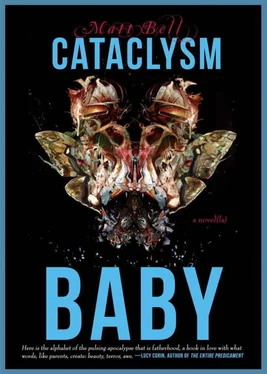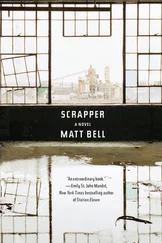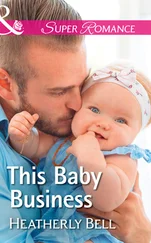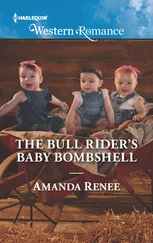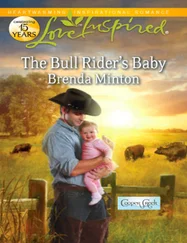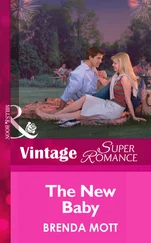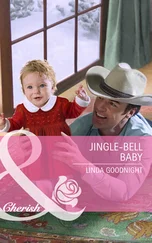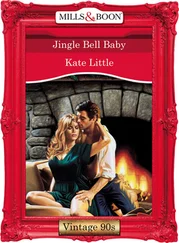Across the orchard, it takes weeks to rough in his sister and his sister and his brother and his brother. Upon a lightning-split husk, I stencil the twins that followed, then whittle out the other babies impossible to call boys or girls, their flesh too bent and broken upon their bones to name.
Our last child, the one birthed runny as yolk, I do not carve it at all. I haven’t the talent to make its nothing form out of wood, haven’t the strength to try.
On the first day of fall, I cut my wife’s body free of the centermost trunk, using my tools to recreate the inverted ribs of her diseased chest, the long-ago smoothness of her oft-emptied belly. With every skill I’ve learned, I remember her upon the wood: Her eyes exactly the proper shape and size, exactly the right tilt to complement the laughing smile last heard too long ago. Her nose alone I work on for days, slicing curl after curl off the bridge until it is the same nose whose tip I kissed goodbye every night, even at the end, when there was so little of it left. I spend a week curving bark into hair, and then a month recreating her favorite blouse, the many folds of its matching skirt, both worn the sun-drenched day we were wed.
And then believing myself done, every cut and carved son as partially complete as he was in life, every doomed daughter dancing in wood around the figure of my long-missed wife.
And then waking to forgetting her name. And then forgetting all their names. And then wishing I had carved those syllables into the trees, so I might know which child is which.
And then telling myself it doesn’t matter, that their names are not important.
It was not their names I loved. It is not their names I miss.
Another weird wind blows, and then it is winter. And then there is me, no longer remembering any day when it was not winter. And still this project, seemingly unfinished: Always some new detail for me to add, some torso to reshape or dimple to correct. Some finger needing a nail, some foot needing the rest of its toes—because surely a child would have ten toes, ten fingers?
Surely every child would have hair and eyes and ears and a nose?
Surely no child could be as incomplete as these?
And then one day berating myself for the lack of skill that left them ugly and warped, rent and ruined.
And then who are these people.
And then who am I to them, these ten perfect children made of trees, this one woman grown out of the applewood to raise them.
And so sad she is. So alone. And how I wish I could join her. And how I wish I could be the father and she the mother and all these our children, so that none of us would be lonely again.
And how sure I am that whoever made them is not the good one who made me, because who would be so cruel as to keep us apart, with this unbearable distance between wood and flesh, this unchangeable differential of atoms.
All winter long I brush the snow from off their faces, so that I might study each one in turn, so that I might practice falling in love with them, as some father must have done, so long ago.
When the snow finally melts, see then this improbable thing I find, sprung forth from the palm of some unrecognizable child: Some new leaf, some green branchlet blooming.
See now how I hold it in my fingers. And how I let it lay its buds across my palm. And how every day I think again I might pluck its growth free of the trunk, so that its fresh promise might tease me no more.
And all around me, only disappointment: Only my house, slowly sinking into the ever-muddying earth. Only my horses and my one remaining milk-cow, lying together upon their sides, moaning in the swamp of our fields. Only my crops, the husk-barren corn plants unable to grow past my kneecaps.
Only my son, with his gray skin and strange skull, his cleft-lisped voice, his useless hands making the arts and crafts his mother taught him, as all around our world shifts less solid, less able to keep us above its porous skin.
While I spend my days adding hopeful supports to our house, burying beams in search of denser ground, this son—this boy I no longer wish to claim—he makes portraits of his mother with the cheap watercolors we bought him as a child. He paints her eyes wrong, colors her hair black instead of blonde, and so every night I take away his papers and throw them into the puddle of our yard.
Every night, I tell him, Again you didn’t paint her right.
I say, Nothing better to do all day, and still you can’t remember your mother’s face.
I say, All our house surrounded by this new swamp, this mad earth that swallowed our neighbors, that sucked deep your mother, when you would not set down your dolls to save her—
This world has taken everything from me, and still there is my boy, sitting here doing nothing, while I have to farm, to herd, to build the struts and floats keeping our house atop this shivering earth.
I say, What good use is a son, if he is a son like you?
Oh, and the hurt in his eyes! So unfair he thinks me, so cruel! Perhaps so, but in no less measure than he deserves, when even after this speech he only puts away his paints to pick up his clay, ready to begin another set of misshapen family figurines, another pairing of plump mothers and dwarfed crack-chested fathers.
What tears when I smash them with my fist, when I crush their bodies upon our food-bare table!
What good tears, so that he might get them out, so that without them he might become the man I want him to be!
For another week, I come in from the fields each night to pull down his construction paper mobiles, to crumble his finger-paintings, his collages cut from our family photo albums.
For another week, I indulge his teenage wastefulness, and then I say, No more.
Then I say, Follow me.
With my rifle in my hands, I say this.
On our porch—warped atop this land of mud-paths and quick-muck—I put my hand on his shoulder.
I put my hand on his shoulder, and then I take it off.
I say, I have decided I would rather have no son than have you.
I say, I will give you a fifty-yard head start, and then I will shoot just once.
If you aren’t killed, then good luck to you.
My sensitive son, always he cries! So unfair, he says. So wrong to do this to my own child, no matter what our differences, sending him out into a world unstable and wet, where who knows which paths might lead to safety, and which to sinking death.
I say, You don’t know, but I do. I know which paths, because I have tread them every day, growing what crops might grow, caring for what horse and cow might scrape through even now.
You have done none of these things, even when asked, even when I wished to teach you to be the man that I am, and so you know nothing of the world outside our walls, outside the confines of your stupid and strange head.
I say, I have never liked you. Not when you were a baby, and not now, when you are less than a man.
I say, I do not know I want to kill you, but I suppose I want a chance. Just to see how this thing might feel, that I have daydreamed for so long.
And then I kick him off the porch, and then I tell him to run.
I wait until he reaches the sycamore slanted at the far border of my yard, slanted as crooked as his limping run, his trunk pulled this way and that by his heavy head, and then I raise the rifle.
I pull the trigger, squeeze its weight made glorious, and then for an instant I am no longer disappointed, despite all this awful world: The short blaze of a muzzle flash, the uncertain flight of a bullet, the razor-edge of chance between one bad outcome and another, worse.
From between my wife’s legs quickened only this puff of womb-air, this gasp of baby-breath trapped for months inside her, followed by no body, no afterbirth, no cord to cut or miscarriage to scrape away. Afterward, my wife insisted she heard the sound of our baby girl crying, but what was I to say in the absence of that child’s shape? How was I to call her anything other than mad, when my wife insisted our baby was near, that she could hear her every move?
Читать дальше
